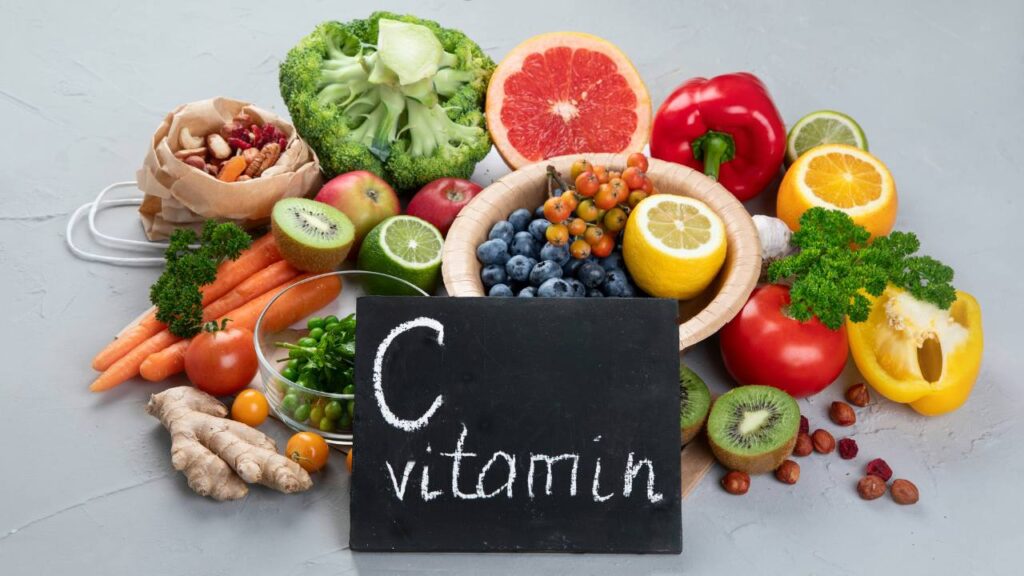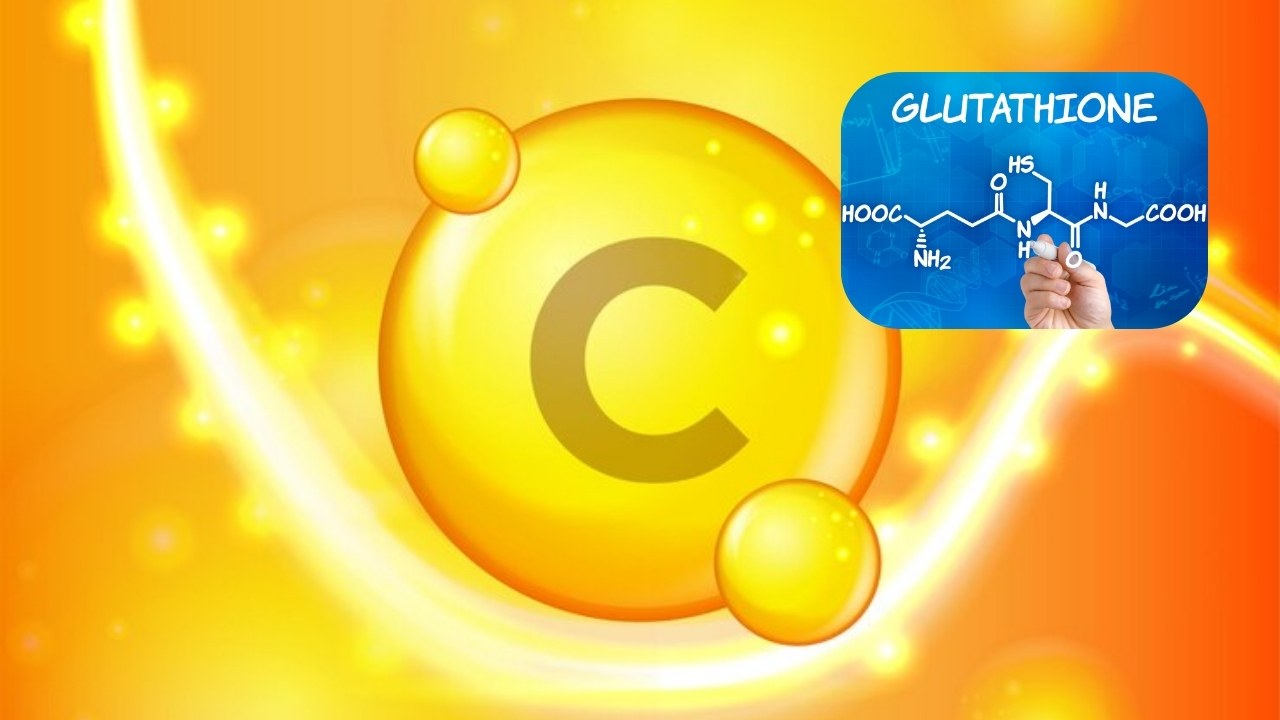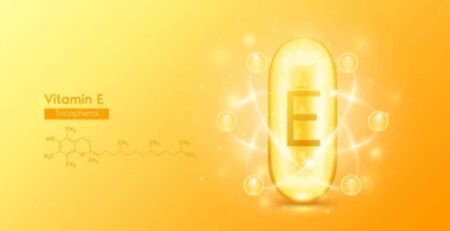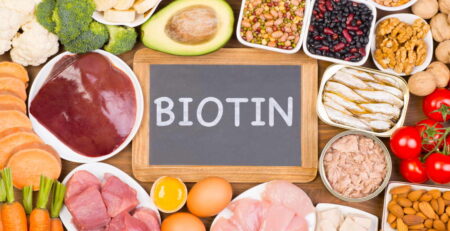When to Take Glutathione and Vitamin C for Maximum Effect? Unlocking the Power of Timing
Timing can be everything, especially when it comes to taking your supplements. Glutathione and vitamin C are like the superheroes of the antioxidant world, each with unique powers to fight off damage and keep your body running smoothly.
But even superheroes need the right timing to unleash their full potential. Ever wondered when the best time is to take these antioxidants for maximum benefit? You’re not alone.
This blog is your guide to determining the optimal timing for taking glutathione and vitamin C. Whether you’re aiming to boost your immune system, brighten your skin, or enhance your overall well-being, getting the timing right can make all the difference.
Let’s dive in and unlock the power of timing together.
The Significance of Glutathione and Vitamin C
In the orchestra of nutrients essential for optimal health, glutathione and vitamin C are vital antioxidants. Each plays a unique role in safeguarding the body’s cells from oxidative stress, supporting immune function, promoting skin health, and aiding in detoxification.
Glutathione: The Master Antioxidant
Glutathione, often heralded as the master antioxidant, is a small molecule found in every cell of the human body. It’s a tripeptide composed of three amino acids: glutamine, glycine, and cysteine. This powerful antioxidant is pivotal in several key bodily functions:
- Detoxification: Glutathione plays a central role in the liver’s detoxification process. It neutralizes harmful free radicals and assists in the elimination of toxins and carcinogens from the body. This process is crucial for preventing cellular damage and maintaining overall health.
- Immune System Support: Glutathione contributes to the efficient functioning of the immune system. It enhances immune cells’ activity, helping combat infections and diseases more effectively. By maintaining optimal levels of glutathione, individuals can ensure their immune systems are primed to defend against pathogens.
- Skin Health: Beyond its internal benefits, glutathione has a significant impact on skin health. It protects the skin from oxidative damage caused by UV rays and pollution, which can accelerate aging. Additionally, glutathione has been associated with skin brightening effects by inhibiting melanin production, the pigment responsible for skin color.
Vitamin C: More Than Just an Immune Booster
Vitamin C, or ascorbic acid, is a water-soluble vitamin well-known for its immune-boosting properties. However, its benefits extend far beyond simply warding off the common cold:
- Antioxidant Protection: Vitamin C is a potent antioxidant that protects cells from oxidative stress and supports the body’s natural defenses against environmental stressors. This protection is vital for preventing chronic diseases, including cardiovascular disease and certain types of cancer.
- Collagen Production: Vitamin C is critical in collagen synthesis, the protein that gives structure and elasticity to the skin, blood vessels, and connective tissues. Adequate vitamin C intake can lead to healthier, more resilient skin and reduced visible signs of aging.
- Detoxification: Like glutathione, vitamin C assists in the body’s detoxification pathways. It neutralizes and removes toxins, contributing to overall wellness and disease prevention.
Optimal Timing for Glutathione Intake
Determining the optimal timing for glutathione intake is key to maximizing its absorption and effectiveness. Glutathione, known as the master antioxidant, plays a crucial role in detoxification, immune system support, and maintaining overall cellular health.
Recent research and expert recommendations have suggested when it might be best to take glutathione supplements to leverage their full potential.
Research Findings on Glutathione Timing
Research into the timing of glutathione intake suggests that its absorption and efficacy can be influenced by when it is taken.
While studies are ongoing, current findings provide valuable insights into how we can optimize glutathione supplementation:
- On an Empty Stomach: Some experts recommend taking glutathione on an empty stomach, typically before breakfast. The rationale is that the absence of competing nutrients and substances can enhance glutathione’s absorption. The stomach’s acidic environment may also help preserve glutathione’s integrity until absorbed in the small intestine.
- Before Bed: Another recommended timing is taking glutathione before bed. The body undergoes repair and recovery processes during sleep and glutathione levels naturally peak. Supplementing with glutathione before bed can support the body’s natural detoxification and rejuvenation activities that occur overnight.
Rationale Behind Recommended Timings
The advice on optimal timing stems from understanding glutathione’s role in the body and how it interacts with bodily processes:
- Maximizing Detoxification: Glutathione is pivotal in the liver’s detoxification process. Taking it when the body is less occupied with digesting food—such as on an empty stomach or during the body’s natural detoxification cycle at night—can theoretically enhance its effectiveness in supporting detox processes.
- Supporting Natural Circadian Rhythms: The body’s endogenous antioxidant levels, including glutathione, fluctuate circadianally, typically increasing during sleep. Aligning supplementation with these natural rhythms could boost glutathione’s antioxidant and restorative benefits.
Individual Needs and Lifestyle Considerations
It’s important to acknowledge that optimal timing can vary based on individual needs, health conditions, and lifestyle factors:
- Personal Health Goals: The timing might be adjusted based on specific objectives, such as improved skin health, enhanced immune function, or support for workout recovery.
- Digestive Health: Individuals with sensitive stomachs might find it more comfortable to take glutathione with a meal to avoid potential gastrointestinal discomfort.
- Lifestyle and Routine: For some, integrating glutathione supplementation into a morning routine helps ensure consistency, while others may find a pre-bedtime regimen more practical and in tune with their body’s restorative cycle.
Optimal Timing for Vitamin C Intake
Vitamin C, a crucial antioxidant known for its immune-boosting properties and vital role in collagen synthesis, has long been a staple in health and wellness routines.
However, understanding the optimal timing for its intake is essential to fully leveraging its benefits. This maximizes its absorption and ensures that its effects align with the body’s natural rhythms and needs.
Considering Meal Composition
One of the first factors to consider when deciding the best time to take vitamin C is meal composition. Vitamin C is water-soluble, meaning it can dissolve in water and is readily absorbed by the body.
However, its absorption can be enhanced when taken with a meal, particularly those containing certain nutrients:
- With Iron-rich Meals: Vitamin C significantly enhances the absorption of non-heme iron (the type found in plant-based foods), making it beneficial to take vitamin C supplements with meals high in iron. This is especially important for vegetarians or individuals at risk of iron deficiency.
- Avoiding High-fat Meals: While vitamin C absorption isn’t directly hindered by fats, focusing on vitamin C with leaner meals might encourage a healthier overall diet and ensure the vitamin isn’t competing with fat-soluble vitamins for absorption.
Timing for Immune Support and Energy
The timing of vitamin C intake can also be strategically aligned with its benefits:
- Morning for Immune Support and Energy: Taking vitamin C in the morning can kick-start the day with an immune boost and contribute to overall vitality. Vitamin C helps combat oxidative stress and supports the adrenal glands, which play a role in stress response and energy production. Starting the day with vitamin C can also ensure you’re replenishing your body’s supply, as it cannot store vitamin C and relies on daily intake.
- Pre- or Post-exercise: For active individuals, taking vitamin C before or after physical activities could be beneficial. Its antioxidant properties help protect against oxidative stress induced by exercise, and its role in collagen production supports muscle and joint health. However, moderation is key, as excessively high doses might hinder exercise-induced adaptations.
Interactions with Other Dietary Supplements
When incorporating vitamin C into a supplementation routine, it’s crucial to consider its interactions with other nutrients and supplements:
- Synergistic with Vitamin E: Vitamin C works synergistically with vitamin E, another potent antioxidant. Taking them together can enhance their effectiveness in combating oxidative stress.
- Spacing Out from B Vitamins at Night: Since vitamin C can be energizing, it’s generally recommended to avoid taking it too close to bedtime, especially if you’re also taking B vitamins, which can have a similar effect.
Individual Needs and Health Goals
Ultimately, the optimal timing for vitamin C intake may vary based on individual health goals, dietary patterns, and lifestyle:
- Personal Health Objectives: Tailor the timing of vitamin C intake to support specific health goals, whether immune support, skin health, or aiding iron absorption.
- Listening to Your Body: Pay attention to how your body responds to vitamin C at different times of the day and adjust accordingly to suit your health and comfort.
The Synergy Between Glutathione and Vitamin C
When combined, glutathione and vitamin C offer synergistic effects that amplify their individual benefits. This partnership enhances antioxidant protection, boosts immune function, and supports more effective detoxification.
For skin health, combining glutathione’s direct effects on melanin production and vitamin C’s role in collagen synthesis can lead to brighter, smoother, and more youthful-looking skin.
Incorporating glutathione and vitamin C into one’s daily regimen—whether through diet, supplements, or both—can significantly bolster the body’s antioxidant defenses, support immune health, enhance skin vitality, and promote efficient detoxification.
As we continue to understand these antioxidants’ comprehensive roles in health and wellness, it becomes clear that glutathione and vitamin C are indispensable allies in pursuing optimal well-being.
Practical Tips for Incorporating Glutathione and Vitamin C into Your Routine
Incorporating supplements like glutathione and vitamin C into your daily routine can significantly boost your health and wellness.
However, making them a consistent part of your lifestyle requires some planning and strategy, especially when you aim to optimize their benefits by accurately timing your intake.
Here are some practical tips to help seamlessly integrate these powerful antioxidants into your daily routine.
Establish a Routine
- Create a Schedule: Align your supplement intake with your daily activities. For instance, taking vitamin C in the morning can become part of your breakfast routine, while glutathione might be best taken before bed. A consistent schedule not only aids in absorption but also helps form a habit.
- Use Technology: Leverage technology to remind you to take your supplements. Setting alarms or calendar reminders on your smartphone can be an effective nudge. Numerous apps are designed to track supplement intake, offering customizable reminders.
Pair with Habit Stacking
Link with Existing Habits: Habit stacking involves pairing a new habit with a current one. If you already have a glass of water first thing in the morning, add your vitamin C to this routine. Similarly, if you read or meditate before bed, take your glutathione at that time.
Make It Convenient
- Prep in Advance: If your mornings are rushed, consider prepping your supplements the night before. Put vitamin C on your breakfast spot and glutathione on your nightstand. Making it easy and convenient reduces barriers to compliance.
- Portable Options: Consider carrying your supplements for those who are often on the go. Single-dose packets or a small pill case can be handy solutions to ensure you don’t miss your supplements even when away from home.
Adjust According to Dietary Needs
Complement with Diet: While supplements are beneficial, obtaining nutrients from food sources is also crucial. Include vitamin C-rich foods like citrus fruits, bell peppers, and broccoli in your meals, and consider foods that naturally boost glutathione levels, such as garlic, onions, and cruciferous vegetables.
Tailor to Your Health Goals
- Assess Your Needs: Depending on your health objectives—skin health, immune support, or detoxification—the timing and dosage of your supplements might vary. Tailoring your supplementation to align with these goals can maximize benefits.
- Consult with a Professional: Adjustments to your supplement regimen should ideally be made in consultation with a healthcare professional. This ensures that your glutathione and vitamin C intake is optimized for your specific health conditions and goals.
Stay Flexible and Mindful
Listen to Your Body: Pay attention to how your body responds to the supplementation. If you experience any discomfort or adverse reactions, it may be time to reassess your regimen.
Be Flexible: Life is unpredictable, and there might be challenging days when sticking to your supplement schedule. While consistency is key, it’s also important to be flexible and forgiving. Missing a day isn’t a setback; it’s an opportunity to get back on track the next day.
Integrating glutathione and vitamin C into your daily routine doesn’t have to be complicated. With some planning, consistency, and mindfulness, you can make these powerful antioxidants a regular part of your journey toward optimal health.
Remember, the goal is to seamlessly enhance your wellness, fitting into your lifestyle rather than becoming a source of stress.
The Role of Diet in Enhancing Antioxidant Benefits
While supplementation plays a crucial role in ensuring adequate intake of essential nutrients like glutathione and vitamin C, the significance of a well-rounded diet cannot be overstated.
A balanced diet, rich in antioxidants, complements supplementation and enhances the body’s natural defense mechanisms against oxidative stress.
Foods Rich in Glutathione
Glutathione, often dubbed the “master antioxidant,” is synthesized in the body from amino acids. Although direct dietary sources of glutathione are somewhat limited due to its breakdown in the digestive system, certain foods can boost its natural production:
- Sulfur-Rich Vegetables: Consuming sulfur-rich vegetables like garlic, onions, leeks, shallots, and cruciferous vegetables (broccoli, Brussels sprouts, cabbage, cauliflower) can enhance glutathione levels. Sulfur is a critical component of glutathione, and these vegetables provide the necessary precursors for its synthesis.
- Whey Protein: High-quality, non-denatured whey protein is rich in cysteine, an amino acid vital for glutathione production. Incorporating whey protein into your diet can support the body’s natural glutathione production.
- Selenium-Rich Foods: Selenium is a cofactor for the enzyme that helps regenerate glutathione. Foods high in selenium, such as Brazil nuts, sunflower seeds, fish (tuna, halibut, sardines), and eggs, can help maintain optimal glutathione levels.
Foods Rich in Vitamin C

Vitamin C is abundant in various fruits and vegetables, making it relatively easy to include in your daily diet:
- Citrus Fruits: Oranges, lemons, limes, and grapefruits are well-known sources of vitamin C. Incorporating these fruits into your diet can boost your immune system and skin health.
- Berries: Strawberries, raspberries, blueberries, and blackberries are not only rich in vitamin C but also other antioxidants that work synergistically to combat oxidative stress.
- Bell Peppers: Both red and green bell peppers contain high levels of vitamin C. They can be a colorful addition to salads, stir-fries, and other dishes.
- Dark Leafy Greens: Kale, spinach, and Swiss chard are rich in vitamin C and provide a variety of other nutrients, including vitamin A, iron, and calcium.
The Importance of a Balanced Diet
The synergy between diet and supplementation is pivotal in maximizing the antioxidant benefits of glutathione and vitamin C. A balanced diet provides a diverse array of nutrients that work together to support overall health, including:
- Enhanced Absorption: Certain nutrients in foods can enhance the absorption of supplements. Fat-soluble vitamins can improve the bioavailability of vitamin C, while the amino acids in protein-rich foods support glutathione synthesis.
- Comprehensive Nutritional Support: In addition to glutathione and vitamin C, the body requires a wide range of nutrients to function optimally. A diet rich in fruits, vegetables, lean proteins, whole grains, and healthy fats ensures that all these nutritional needs are met.
- Natural Antioxidant Defense: While supplements can boost antioxidant levels, the compounds found in whole foods often come with their unique benefits. The complex interactions between these compounds can provide more comprehensive protection against oxidative damage than supplements alone.
Conclusion
The key time to take glutathione and vitamin C is to harness their full potential. It’s all about giving your body what it needs to thrive when it needs it. Remember, supplements are most powerful when they fit seamlessly into your life, supporting your health journey every step of the way.
For those ready to take their wellness to the next level, Vitamin MD Multivitamins, backed by th2e expertise of Dr. David Nazarian, offer the quality you can trust.
Take control of your health with the right nutrients at the right time, and feel the difference it makes. Here’s to unlocking your best self with a little help from science and timing!












Leave a Reply